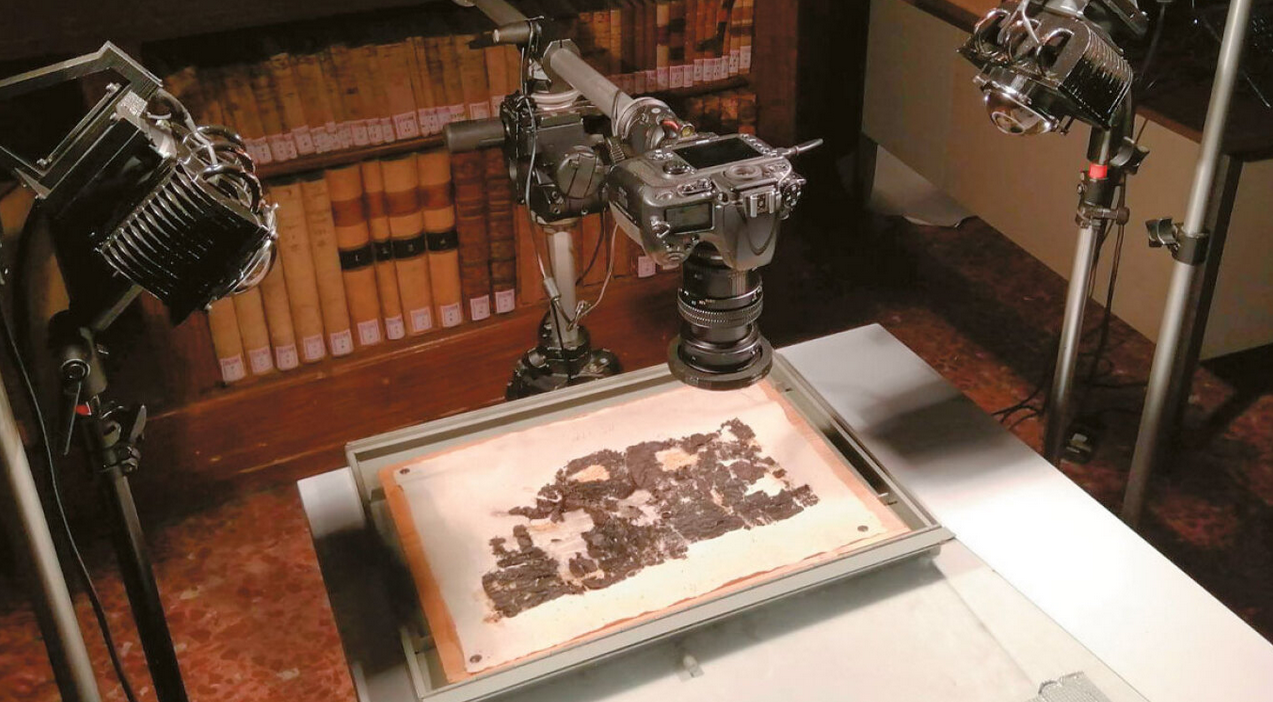Interest among historians and researchers has been sparked by an ancient text circulating in recent hours, revealing details about Plato’s burial place and his last night.
According to CNN, Italian researchers claim that the deciphered text from ancient papyri may finally reveal the location where the Greek philosopher was buried.
According to the latest revelation by the Professor of Papyrology in the Department of Philology, Literature, and Linguistics at the University of Pisa, Graziano Ranocchia, Plato was buried in a secret garden near the Temple of the Muses within Plato’s Academy in Athens.
Until now, it was only known that the philosopher was buried in the academy without specifying the exact location, the professor told CNN.
Plato’s Academy was destroyed in 86 BCE by the Roman general Sulla.
It is noted that the papyri of Herculaneum, which were burned after being buried under layers of volcanic ash following the eruption of Vesuvius in 79 CE, continue to be examined by specialists using artificial intelligence and other technologies.
The revelation about music
The ancient text also provides more details about Plato’s last night, revealing that he was not fond of the music being played.
Just a week ago, experts reported in a presentation in Naples that the notes played by a Thracian slave were pleasant to Plato’s ears.
However, it is now revealed that shortly before he died, the philosopher felt discomfort with the music played, according to Ranocchia, who mentioned that Plato confided this to a visitor from Mesopotamia.
“He had a high fever and was disturbed by the music they were playing,” Ranocchia said.
The text also reveals that Plato was sold as a slave on the island of Aegina, possibly as early as 404 BCE when the Spartans captured the island, or alternatively in 399 BCE, shortly after the death of Socrates.
“Until today, it was believed that Plato was sold as a slave in 387 BCE during his stay in Sicily at the court of Dionysius I of Syracuse,” the professor said. “For the first time, we were able to read sequences of hidden letters from papyri that were wrapped in multiple layers and had stuck to each other over the centuries, through a process of unwinding using mechanical technique,” he added.
The contentious ancient text about Plato is part of approximately 1,800 carbonized papyri discovered in the 18th century in a building believed to belong to Julius Caesar’s father-in-law, who lived in Herculaneum, a seaside town about 20 kilometers from Pompeii.
Experts use artificial intelligence, a specialized visualization technique, and hyperspectral imaging to read the text from the nearly destroyed papyri.






































